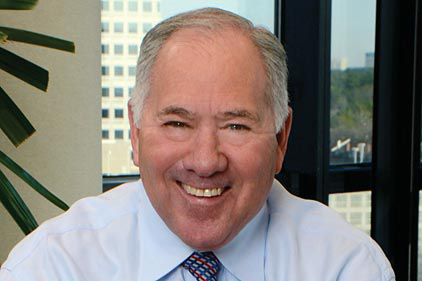In a recent report on Equal Employment Opportunity Commission (EEOC) legal actions, it was noted that the agency had filed suit alleging Americans with Disabilities Act discrimination by an employer for the failure to hire an individual who informed his new employer that he was using Suboxone, an opioid. Suboxone is typically prescribed to help recovering drug addicts reduce their withdrawal symptoms. The defendant in the case settled the claim for $70,000. The EEOC concluded that the company failed to engage in an individualized assessment to determine whether the applicant could perform his job while using Suboxone. The mere fact that the EEOC itself sued an employer over this issue is cause for concern.
Opioid Use is Too High to Ignore
With the increasing use of prescribed opioids, reportedly one out of every three persons took such a prescription in 2015, the likelihood that the issue will arise in either the hiring context or involving a current employee is significant. A parallel issue may be developing with the spread of medical and recreational marijuana. Until quite recently, the fact that marijuana remains a controlled substance under federal law virtually assured the right of employers to refuse to hire or terminate persons who test positive for marijuana in their system.
Three recent marijuana cases may be the beginning of a trend towards more legal tolerance of marijuana, notwithstanding an employer’s drug-free workplace policy. In two cases, one in Rhode Island and the other in Connecticut, the court used specific protective language in the state’s medical marijuana laws as the basis for finding termination or refusal to hire to be discriminatory. In a more concerning case, the Supreme Court of Massachusetts ruled that an employer that rejected an applicant that was using medical marijuana away from work to address a disability was entitled to the interactive process and reasonable accommodation consideration under disability law for the lawful use of medical marijuana.
This trend to protect the use of medical marijuana, along with the proliferation of the use of prescription opioids, makes having a defensible procedure for addressing the employability of such individuals a necessity. Given the reality that either opioid or medical marijuana usage could become an issue in your workplace, perhaps consideration should be given to a “Best Practice” guidance to consider when confronted with the issue.
Companies Should Develop Best Practices to Address Prescription Drug Use
One case demonstrates what should form the “Best Practices” recommendation for your business. The case involved an experienced industry supervisor at a manufacturing facility who was applying for a similar supervisory position at another manufacturing company. During his medical evaluation he mentioned that he was under a regimen of Suboxone and was using it during non-work hours as prescribed by his physician. Luckily for the company, it maintains a professional relationship with the industrial medicine department of a local hospital. When the industrial medicine physician was made aware of the use of Suboxone by the applicant, he asked the company to put the hiring process on hold while he considered the implications of the use of the synthetic opioid. He also asked for an updated and detailed job description listing the specific duties of the position.
Not only did the physician contact the applicant’s physician to discuss the applicant’s experience while using Suboxone, but he also did independent research on medical studies of patients using Suboxone. While the applicant’s physician had not observed any problem behavior by the applicant while on Suboxone, he could not categorically state that it could not cause some type of impairment.
One of the medical studies that the company physician reviewed indicated that persons taking Suboxone, on occasions, had impairing side-effects. He concluded that he could not, in good conscience, approve of the applicant filling the open position. He relied upon the fact that on occasion, and on some days frequently, the person would have to operate a hand-held overhead crane to lift equipment as well as to help remove steel scrap weighing many tons. He also expressed concern over the general safety of a person in the potentially dangerous industrial environment such as a manufacturing facility. Based upon the physician’s concerns, the tentative job offer was withdrawn. The various steps taken in the case discussed above form the basis of what could be considered a “Best Practices” for employers dealing with prescription opioids in their workplace.
Since the EEOC takes the position that employers are not permitted to require employees or applicants to reveal the use of prescription medication, some employers “encourage” employees to report opioid usage to a plant nurse or other medical personnel. If a company has or adopts such a policy, due to legitimate safety concerns, more widespread dissemination of the need for voluntary reporting would likely result in the type of information sought. Of course, once reported, the employer would have to go through the ADA interactive process to consider whether a non-opioid drug might be substituted to address the disability. This would entail contact between the company’s medical review officer and the employee’s or applicant’s prescribing physician.
If a change to a non-opioid medication is not feasible, then an employer would have to consider if any reasonable accommodation could be made. If the job at issue could be considered safety sensitive, the employer could take the position that it would be dangerous to have a person who is routinely using opioids on such a job. If the issue is with a current employee, reasonable accommodation would require that the employee be considered for any open job where the use of prescription opioids does not pose a danger. With regard to applicants, the procedure would be similar, except that an employer would not be required to accommodate by offering them an alternative open position. However, if their treating physician refused to try to substitute a non-opioid medication for treatment, the employer would then have to rely upon its own medical expert’s opinion that the use of an opioid posed a risk of harm to the applicant and potentially others. It would be the “direct threat” defense under the ADAAA for refusing to hire the applicant. The safety risks would have to be well documented and not be mere speculation.
In the case of medical marijuana usage in those states that have adopted such laws, the process would be quite similar. Medical marijuana would be considered a prescribed drug. Unless and until states that have passed such laws begin to take the approach of the Massachusetts Supreme Court, that such usage is to be treated under the ADA reasonable accommodation analysis, employers with drug-free workplace policies may terminate or refuse to hire such persons. Marijuana, medical or otherwise, remains an illegal drug under federal law.
Conclusion
Cautious employers will want to carefully monitor how the EEOC, as well as state law, treats prescription opioids and medical marijuana for possible reasonable accommodation purposes. It is a rapidly changing area that will likely place greater burdens on employers.
——-
Richard D. Alaniz is a partner at Alaniz Law & Associates, a labor and employment firm based in Houston. He has been at the forefront of labor and employment law for over forty years, including stints with the U.S. Department of Labor and the National Labor Relations Board. Rick is a prolific writer on labor and employment law and conducts frequent seminars to client companies and trade associations across the country. Questions about this article, or requests to subscribe to receive Rick’s monthly articles, can be addressed to Rick at (281) 833-2200 or ralaniz@alaniz-law.com.
Thanks for reading CPA Practice Advisor!
Subscribe Already registered? Log In
Need more information? Read the FAQs
Tags: Legislation





